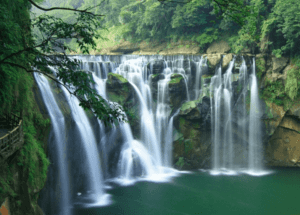NATURAL WATER RESOURCES: “Water, water everywhere but there is no water to drink”. About 70% of the earth is covered with water yet only a little percentage of that is clean and safe enough for human consumption; as little as 3%. Natural water resources can be classified under, Surface and Underground waters.
Surface water includes water from open sources such as streams, rivers, lakes, and oceans. These water bodies appear clear on the surface but they are often heavily contaminated and unfit for human consumption. That’s why environmental scientists have embarked on the quest to save our water resources and eradicate pollution.
The main reservoir of fresh water is in the earth’s crust – Underground waters. Some underground waters are easy to reach while some others are found in regions far away from the earth surface.
Here, we have the water reserve concentrated in the glaciers of Antarctica, Greenland, and the islands of the Arctic Ocean. Freshwater is also found in precipitation falling out of the atmosphere – rain and snow.
From time immemorial, rivers and lakes have been the major sources of fresh water. The largest lake water reservoir is Lake Baikal, which contains 20 thousand km3 of water. The water of this lake is considered to be the cleanest lake water in the world. The water of Lake Baikal is so clean that you can easily see the stones lying even at a depth of 40 m.
These natural sources of water through clear, often contain high amounts of mineral compounds that make them unfit for human consumption. They have to go through some purification stages.
Sources Of Water Used In Industries
Natural water sources especially surface waters are used for industrial and domestic purpose due to certain constituents in them. Salty waters may not be fit for drinking but may be suitable in some industrial processes. Mostly, what people do is to obtain from the closest source and improve it to meet their needs. The water can undergo desalination and disinfection to make it suitable for its intended use.
Mankind consumes a huge amount of fresh water. The most water-intensive industries include the mining, steel, chemical, petrochemical, paper and food industries. They consume about 70% of all water used for industrial purposes. But still, the main consumer of fresh water is agriculture, which takes 60-80% of the freshwater used by man.
Sources Of Water Suitable For Kids
Extra care should be taken when it comes to kids and water consumption. The source is very important. While some people have resorted to bottled water, some of them are nothing but repackaged tap water, with chlorine and other chemicals that are unfit for kids. A household filter for children can do a better job.
Water for baby food should be extracted from deep artesian wells in ecologically safe areas. Notwithstanding, the water must undergo an additional cleaning before bottling. Some models besides filtration functions also fulfill the functions of enriching the water with minerals (magnesium, fluorine, etc.), which are so necessary for children.
Children should not be given water from open sources, even if they appear clear on the surface. In the springs kids can get not only microbes but also nitrates, various toxins and mechanical impurities – such as microscopic particles of clay or sand. Boiled tap water is also not suitable for baby food.
For disinfection, tap water has chlorine, which remains in it even after boiling. Chlorine is extremely harmful to the body; a lot of scientists even believe that prolonged use of chlorinated water can lead to the development of cancer. In addition, chlorine reacts with other toxic substances that can be in the water from the tap – benzene, phenol. So it creates new compounds that undermine immunity.
In ordinary tap water, corresponding to all norms, lead can be present (elevated level of lead in the body, causing a risk of mental retardation, it is noted in about 15% of children). There also may be detergents (detergents), hard calcium and magnesium salts and nitrates. But there are few useful mineral substances in tap water, and even those are often destroyed in the process of boiling.
It is often possible to hear that the results of a check in a particular Nigerian city showed that tap water does not meet the standards.
Today, the shortage of clean fresh water is the most fundamental human problem. Human beings need water to survive – water free from all forms of pollution. Protecting and preserving our natural water resources is a collective responsibility – everyone should be involved.
